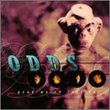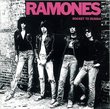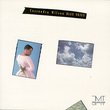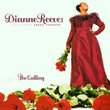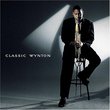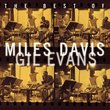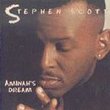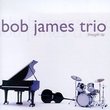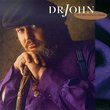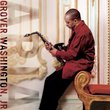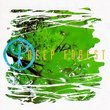| All Artists: James Carter Title: Conversin With the Elders Members Wishing: 1 Total Copies: 0 Label: Atlantic / Wea Original Release Date: 6/4/1996 Release Date: 6/4/1996 Genres: Jazz, Pop Styles: Avant Garde & Free Jazz, Modern Postbebop, Bebop Number of Discs: 1 SwapaCD Credits: 1 UPCs: 075678290824, 075678290848 |
Search - James Carter :: Conversin With the Elders
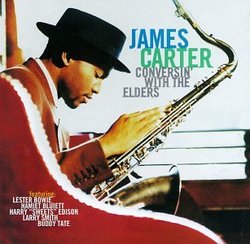 | James Carter Conversin With the Elders Genres: Jazz, Pop
The Lincoln Center Jazz Orchestra, led by Wynton Marsalis and Stanley Crouch, has made a public point of not inviting such post-Coltrane avant-gardists as Anthony Braxton, the Art Ensemble of Chicago, and the World Saxopho... more » |
Larger Image |
CD DetailsSynopsis
Amazon.com The Lincoln Center Jazz Orchestra, led by Wynton Marsalis and Stanley Crouch, has made a public point of not inviting such post-Coltrane avant-gardists as Anthony Braxton, the Art Ensemble of Chicago, and the World Saxophone Quartet to the jazz-revival party. Carter, by contrast, has invited them to his own shindig on the superb Conversin' with the Elders. Braxton and the AEC's Lester Bowie are represented by compositions, while Bowie and the WSQ's Hamiet Bluiett are present as Carter's soloing partners. More conventional jazz heroes, such as Count Basie horn men Buddy Tate and Harry "Sweets" Edison, are also on hand. By taking a broad approach to jazz history, Carter has so expanded his musical vocabulary that every time he brings his mouthpiece to his lips he can make any sound he wants--silky swing, strangled shrieks, romantic lushness, or bawdy honks. He uses them all here with a casual swagger that's a pleasure to behold. --Geoffrey Himes Similar CDs
Similarly Requested CDs
|
CD ReviewsA joyous celebration of the jazz tradition m_noland | Washington, DC United States | 08/19/2001 (5 out of 5 stars) "If you're a "smooth jazz" fan or one of those Wynton Marsalis-style aesthetic ayatollahs who likes to tell everyone what is or what is not jazz, you probably won't like this CD. If, on the other hand, you have an open heart, an open mind, and open ears, this disk's a treasure. James Carter's command over his horns is truly stunning. On this disk he deploys it in a variety of quintet encounters with other horn players (Lester Bowie (on good behavior), Harry "Sweets" Edison, Buddy Tate and others) from various jazz traditions, and its not often that one encounters such a varied disk of straight-ahead jazz. Carter and his remarkably consistent and able rhythm section (Craig Taborn, Jaribu Shahid, and Tani Tabbal) handle everything from Bennie Moten's "Moten Swing" to reggae to waltz to Anthony Braxton's "Composition #40Q" with aplomb. OK, so Carter and Co. engage in an occasional shrill squeal (oh!), atonal blat (oh, no!), and even the dreaded widdly-woo and a honk or two (eek!!!)...." Don't get too comfortable. David Bonesteel | Fresno, CA United States | 10/05/2003 (4 out of 5 stars) "James Carter clearly has a great command of his instrument. Whether being playful, romantic, or engaging in rude blasts of atonality, he is always fascinating to listen to. Here he teams up with a varied array of influential jazz masters to produce a disk of consistent quality. The only flaw is that Carter fails to maintain a cohesive atmosphere among his disparate elements, resulting in a hodgepodge of admittedly excellent tunes. This remains a challenging and rewarding listen that refuses to let you get too comfortable. A standout is the drunken, careening "Freereggaehibop."" Hardly "Conversin" J. Rich | 01/12/2009 (1 out of 5 stars) "Let me be as brutally honest as I can: this recording did nothing for me, because the musicianship is subpar and the leadership is just terrible. Why do record companies continue to promote such pointless drivel as this recording? There's no lyrical beauty, melodic invention, or any kind of deep feeling. I'm sorry, but this isn't jazz and it never will be. After hearing recordings such as "Conversin' with the Elders," I'm only reminded of the fact that I'm happy for the bebop movement of the late '40s through mid '60s. Carter is a sorry excuse for a saxophonist. Give me Hawkins, Johnny Griffin, Eddie "Lockjaw" Davis, Desmond, Webster, Getz, Zoot, Al Cohn, Art Pepper, Benny Golson, Gigi Gryce, Stanley Turrentine, Ike Quebec, etc. any day of the week.
Let me also say that anytime you call an album "Conversin' With The Elders" you show just how little class you have. It's a stupid name for stupid album." |

 Track Listings (9) - Disc #1
Track Listings (9) - Disc #1